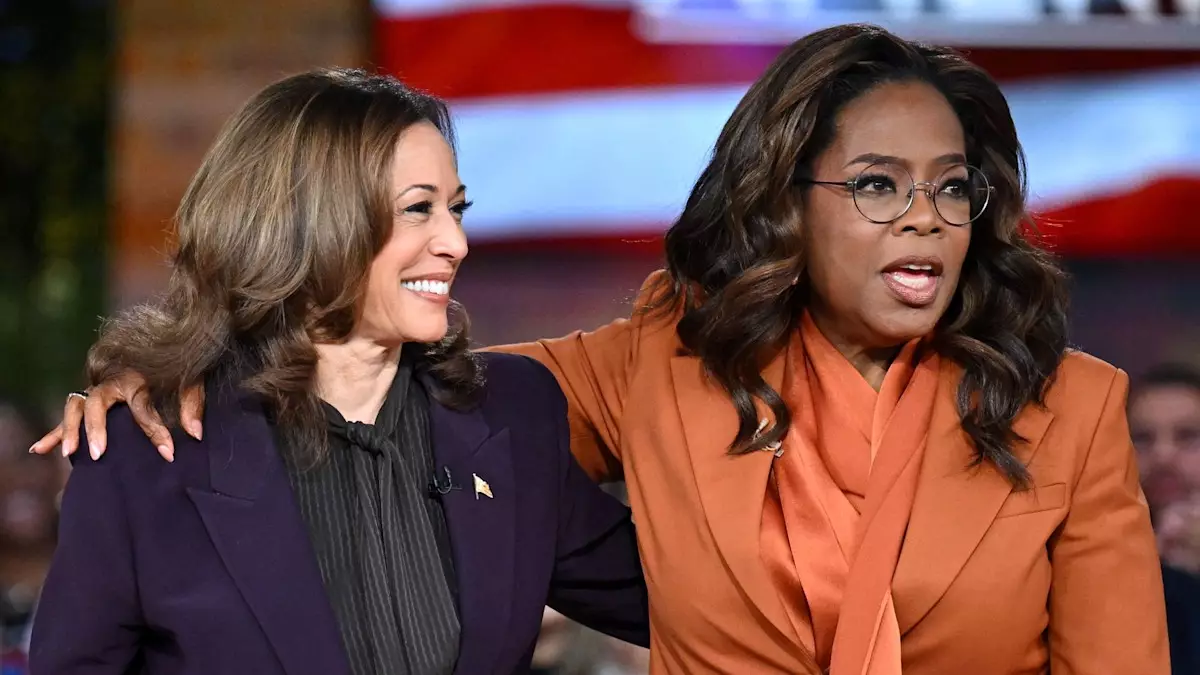As the dust settles on a contentious election cycle, misinformation often spreads like wildfire, leading to confusion and misunderstandings. One notable instance of this occurred recently when rumors began circulating that media magnate Oprah Winfrey had been paid for her support of Kamala Harris during the vice-presidential candidate’s campaign. Given Oprah’s influential status, any claims regarding her relationships in the political arena garner significant attention, hence the critical need for clarity in such matters.
Following Donald Trump’s electoral victory, many speculated about the financial aftermath of Kamala Harris’ extensive campaign efforts. Reports emerged alleging that Harris’ campaign had exhausted over $1 billion in fundraising, culminating in a staggering $20 million debt. Amidst this fiscal turmoil, particular emphasis was placed on Oprah allegedly receiving a hefty sum of $1 million for her appearances supporting Harris. In an era of heightened scrutiny, such claims warrant careful examination, especially considering Oprah’s longstanding reputation for integrity and truthfulness.
Upon being confronted with the rumors, Oprah was swift and decisive in her rebuttal. During an interaction with TMZ, she firmly stated, “Not true. I was paid nothing, ever.” Such a clear denial from a figure of Oprah’s stature serves not only to dispel rumors but also to reinforce the importance of accurate reporting in the media.
Oprah did not simply issue a blanket denial; she elaborated on the context surrounding her involvement in Harris’ campaign, emphasizing the genuine nature of her support. For instance, she clarified that her production company, Harpo, was engaged to handle the logistics of a live-streamed event, providing critical resources such as set design, lighting, and technical production. However, she stressed that she herself did not draw a personal fee for her work. This distinction is vital, as it highlights the collaborative effort behind her appearances and underscores the fact that her support stemmed from a place of genuine commitment rather than financial incentive.
Moreover, it’s crucial to recognize Oprah’s acknowledgment of the professionals employed during the production. While she did not take payment, she made clear that the people working to execute the event deserved to be compensated for their labor. This sentiment reflects a broader ethical stance in the entertainment and political sectors: one can contribute positively to a cause without seeking personal gain.
The scrutiny did not stop at Oprah Winfrey. Alongside her situation, further rumors circulated pertaining to the Harris-Walz campaign staff. Reports suggested that many team members had not received their final paychecks, denouncing them as “unemployed.” However, those claims were swiftly countered by individuals closely associated with the campaign. Marcus Vusovich, reportedly a staffer, took to social media to clarify that staff was indeed still employed, receiving payment on the established schedule, with additional severance offered.
This response highlights the detrimental impact of misinformation. In a polarized political landscape, such unfounded claims can take root and create needless panic among campaign workers and supporters alike. The need for clear communication and verified information is paramount, especially in light of overwhelming public interest and emotional investment in political outcomes.
As the campaign concluded, Harris offered a measured concession speech filled with hope and resilience. She acknowledged that the election results did not achieve what supporters had fervently wished for, yet she encouraged maintaining faith in the ideals that underpin the nation. This sense of determination resonates within the political narratives that shape America, underscoring the notion that the struggle for justice, equality, and dignity persists beyond any singular electoral defeat.
In scrutinizing both Oprah Winfrey’s and Kamala Harris’ narratives, one is reminded of the complexities of political involvement and the potential pitfalls of misinformation. In an age where rumors can escalate rapidly, it’s crucial for public figures to clarify their positions and for followers to seek out credible sources. Ultimately, the conversation surrounding personal motivation in political support should shift toward empowerment, cooperation, and an unwavering commitment to the principles that define democracy.


Leave a Reply